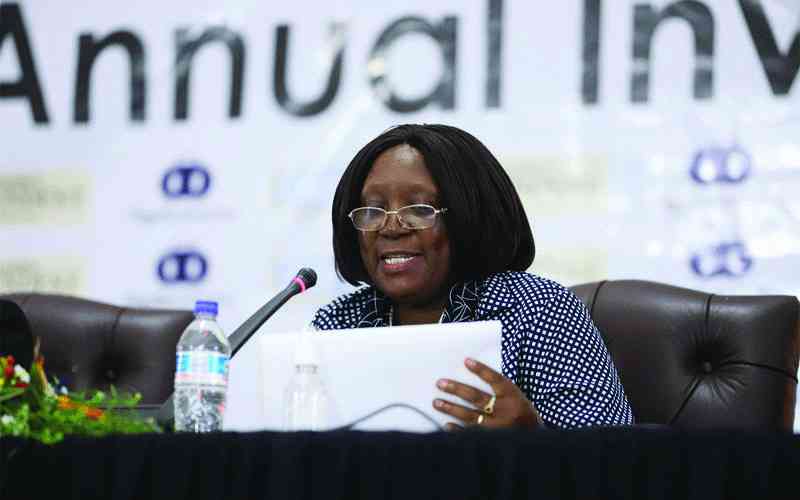
BY Fr Oskar Wermter SJ EVEN University graduates have trouble these days to find employment after they have passed their exams. A degree is no guarantee that you will find a good job, with a good salary to go with it. This a topic much discussed among parents and their sons and daughters. Even our writers find it a hot issue, worth investigating.
There are scholars who write books about it, serious scholars and academics as well as fiction writers and novelists.
Fending for Ourselves — Youth in Zimbabwe 1980-2020. Edited by Rory Pilossof, Weaver Press, 2021, pp., is a collection of 14 essays, on many aspects of education and employment. And a novel by Valerie Tagwira, Trapped, Weaver Press.
“It is often taken for granted that a degree is a guarantee for formal employment and good pay. This is no longer so.
“There is little or no guarantee of employment whatsoever for those who go through Zimbabwe’s education systems, including those who graduate from its universities.”(p. 71)
Government is proud that the enrolments of students in the increased number of schools means more children get an education. But what kind of education?
Students and their parents want white-collar jobs. Most of them want formal employment and good salaries.
Unfortunately, most young people have little to offer to prospective employers who want workers with practical skills.
- Chamisa under fire over US$120K donation
- Mavhunga puts DeMbare into Chibuku quarterfinals
- Pension funds bet on Cabora Bassa oilfields
- Councils defy govt fire tender directive
Keep Reading
Graduates with degrees in political science are on offer, but finding a good plumber or electrician for some repairs in the house may be a problem: Such practical skills are in short supply. The labour market favours very practical young men and women, who do not mind getting their hands dirty.
When a new heating system was installed in the house where I live, I was surprised when two young women came in blue overalls and carrying tool boxes to install the new heaters.
Education must be focused on work, not on employment. We cannot employ all who come from schools and colleges.
But work is there, plenty of it. Many graduates are aware of that and create their own jobs in the informal sector.
“The ever expanding informal sector is a demonstration of creativity and adaptation.”
Our main concern is not about how many can be educated in our system of education, but whether the education on offer is relevant to our social and economic situation.” Is the curriculum relevant to what the country needs most?
“Of the 200–300 000 school leavers with secondary education entering the job market each year, the formal sector has only been able to absorb 20-30 000 of these. These school leavers have no experience, no adequate practical skills. What they have is academic education, which has imbued them with high aspirations for white-collar jobs. What they need to improve their chances of (self)employment are opportunities for work experience on the labour market (Kanyenze).”
Employers ask: Do young people shy away from getting their hands dirty? The alternative is very insecure “informal employment” with a much lower income.
“The solution is to introduce meaningful basic in schools.”
There used to be F2 schools trying to give that sort of practical skills.
But they were discontinued after Independence. Parents thought that academic education would give their children a greater chance for lucrative careers.
For this scheme to succeed, students have to be taught also basic entrepreneurial skills to make their projects in the informal sector a success.
Now we may have to ask: Do we have teachers who can teach such a new subject?
I remember a mine where parents wanted their sons not to be skilled underground miners, but office vocational education clerks, even though the men toiling underground earned much higher salaries than the “white-collar office clerks”.
I remember from my own days in school that we used to learn a slogan in Latin, “Non scholae, sed vitae discimus” (We learn not for school, but for Life).
So the wisdom of these ideas is not new, but is, in fact, very old, it is wisdom already our ancestors were familiar with.
We used to interrupt our studies for the priesthood, to go out and be trainee teachers and preachers for two years while getting to know better the living conditions of the people we hoped to be working for.
You succeed in this life, if you can change your ways and adapt to new situations.
- Fr Oskar Wermter SJ Father Oskar Wermter is a social commentator. He writes here in his personal capacity






